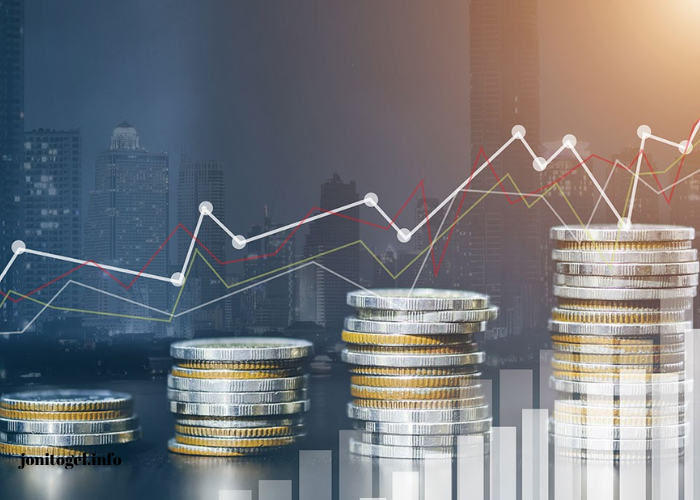Understanding economic indicators is crucial for making informed decisions about personal finances. These indicators provide a snapshot of the economy’s health, offering insights into trends that can directly or indirectly affect individuals’ financial well-being. This article will explore the primary economic indicators and their impact on personal finances, helping you navigate the complex relationship between the broader economy and your personal financial situation.
Gross Domestic Product (GDP)
Gross Domestic Product (GDP) is one of the most critical economic indicators. It represents the total value of all goods and services produced within a country over a specific period. GDP growth signifies economic expansion, while a decline indicates contraction.
Impact on Personal Finances: When GDP is growing, it often leads to more job opportunities and higher wages, positively affecting personal income. On the other hand, a declining GDP may signal an economic downturn, which can result in job losses, pay cuts, and reduced consumer spending. For individuals, understanding GDP trends can help in career planning, as strong GDP growth usually correlates with a more robust job market and higher earning potential.
Unemployment Rate
The unemployment rate is another vital economic indicator that measures the percentage of the labor force that is unemployed and actively seeking work. A high unemployment rate indicates a struggling economy, while a low rate suggests economic strength.
Impact on Personal Finances: A low unemployment rate generally means job security and potential wage increases, enhancing overall financial stability. Conversely, high unemployment can lead to job insecurity, lower wages, and increased competition for available positions. Individuals should monitor unemployment trends to assess job market conditions and plan their careers accordingly. During times of rising unemployment, it might be wise to increase savings and reduce discretionary spending in preparation for potential income instability.
Inflation Rate
Inflation measures the rate at which the general level of prices for goods and services is rising, and subsequently, how purchasing power is eroding. Central banks, like the Federal Reserve in the U.S., often aim for a moderate inflation rate, typically around 2% annually.
Impact on Personal Finances: High inflation can significantly reduce the purchasing power of money, meaning that consumers need more money to buy the same goods and services. This can lead to higher living costs and a decrease in the real value of savings. For example, if inflation outpaces wage growth, individuals may find it harder to maintain their standard of living. On the other hand, moderate inflation can be a sign of a growing economy. To protect against inflation, individuals might consider investing in assets that typically outpace inflation, such as stocks, real estate, or inflation-protected securities.
Interest Rates
Interest rates, set by central banks, are another crucial economic indicator. They influence the cost of borrowing and the return on savings. The central bank adjusts interest rates to control inflation and stabilize the currency.
Impact on Personal Finances: When interest rates are low, borrowing becomes cheaper, encouraging spending and investment. This can be beneficial for individuals looking to take out loans for major purchases like homes or cars. However, low-interest rates also mean lower returns on savings, which can discourage saving. Conversely, high-interest rates make borrowing more expensive but offer better returns on savings and fixed-income investments like bonds. Individuals need to consider interest rate trends when making decisions about taking on debt or managing savings.
Consumer Confidence Index (CCI)
The Consumer Confidence Index (CCI) measures how optimistic or pessimistic consumers are about the economy’s future. It is based on surveys that ask consumers about their perceptions of current economic conditions and their expectations for the next six months.
Impact on Personal Finances: High consumer confidence usually indicates that people are more willing to spend money, believing that the economy is strong and their financial situation will improve. This can lead to economic growth and higher stock prices, benefiting those with investments. Low consumer confidence, on the other hand, may lead to reduced consumer spending, slowing economic growth and potentially leading to a recession. Individuals can use the CCI as a gauge to decide whether to save or spend. During times of low confidence, it might be prudent to focus on saving and reducing debt, while high confidence periods might be more favorable for making large purchases or investments.
Stock Market Indices
Stock market indices, such as the S&P 500 or the Dow Jones Industrial Average, track the performance of a selection of stocks, representing the overall health of the stock market and, by extension, investor sentiment.
Impact on Personal Finances: Rising stock market indices generally reflect a growing economy and can increase the value of personal investments, including retirement accounts like 401(k)s. A bull market can encourage individuals to invest more, taking advantage of the potential for higher returns. However, stock markets are volatile, and a sharp decline can lead to significant losses. It’s essential for individuals to diversify their portfolios and not rely too heavily on stock investments. Understanding market trends can help in making informed decisions about when to invest, hold, or sell assets.
Housing Market Indicators
Housing market indicators include data on home sales, mortgage rates, and housing starts (the number of new residential construction projects). These indicators reflect the demand for housing and the overall health of the real estate market.
Impact on Personal Finances: A strong housing market can increase the value of real estate investments, providing homeowners with increased equity. It also suggests economic growth, as more people are buying homes. However, if housing prices rise too quickly, it can lead to affordability issues, making it harder for first-time buyers to enter the market. Conversely, a weak housing market might indicate economic troubles and can lead to declining home values, impacting those who own property. Individuals should consider housing market trends when buying or selling property and when deciding on mortgage financing options.
Personal Income and Wages
Personal income and wages are indicators of the overall earnings of individuals in an economy. They include salaries, wages, bonuses, and other sources of income.
Impact on Personal Finances: Rising personal income and wages generally indicate a healthy economy, where individuals have more money to spend and save. This can lead to higher standards of livin
Currency Egexchange Rates
g and more financial security. On the other hand, stagnant or declining wages can make it challenging to keep up with rising costs, especially if inflation is high. Understanding trends in personal income can help individuals make decisions about job opportunities, salary negotiations, and budget management.
Currency exchan rates indicate the value of one currency relative to another. These rates are influenced by various factors, including interest rates, economic stability, and trade balances.
Impact on Personal Finances: For individuals who travel internationally or invest in foreign assets, exchange rates can significantly impact personal finances. A strong domestic currency makes foreign goods and travel cheaper but can hurt exports, potentially leading to job losses in export-driven industries. Conversely, a weak currency makes imports more expensive, contributing to higher inflation but can boost domestic industries by making exports more competitive. Individuals involved in international trade or those planning to travel should monitor exchange rate trends to optimize spending and investment strategies.
Conclusion
Economic indicators are essential tools for understanding the broader economic environment and its impact on personal finances. By keeping an eye on indicators such as GDP, unemployment, inflation, interest rates, consumer confidence, stock market indices, housing market data, personal income, and exchange rates, individuals can make more informed decisions about saving, spending, investing, and planning for the future. Economic trends provide valuable context that can help individuals navigate the complexities of personal finance and achieve greater financial stability.






